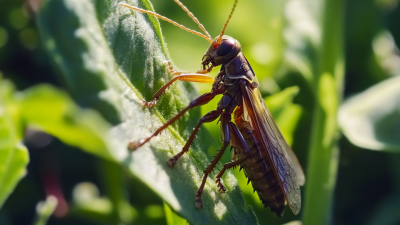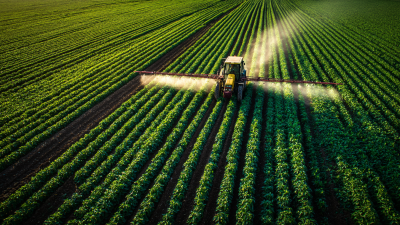 0551-68500918
0551-68500918 





You know, lately, the agricultural scene around the world has been going through some pretty major changes. A lot of it comes down to innovative pest management techniques, especially when it comes to how we control insects. With everyone wanting more sustainable and effective pest solutions these days, experts say the industry is really going to boom—like, they’re estimating it could hit around $22.2 billion by 2025! That’s a big deal, right?
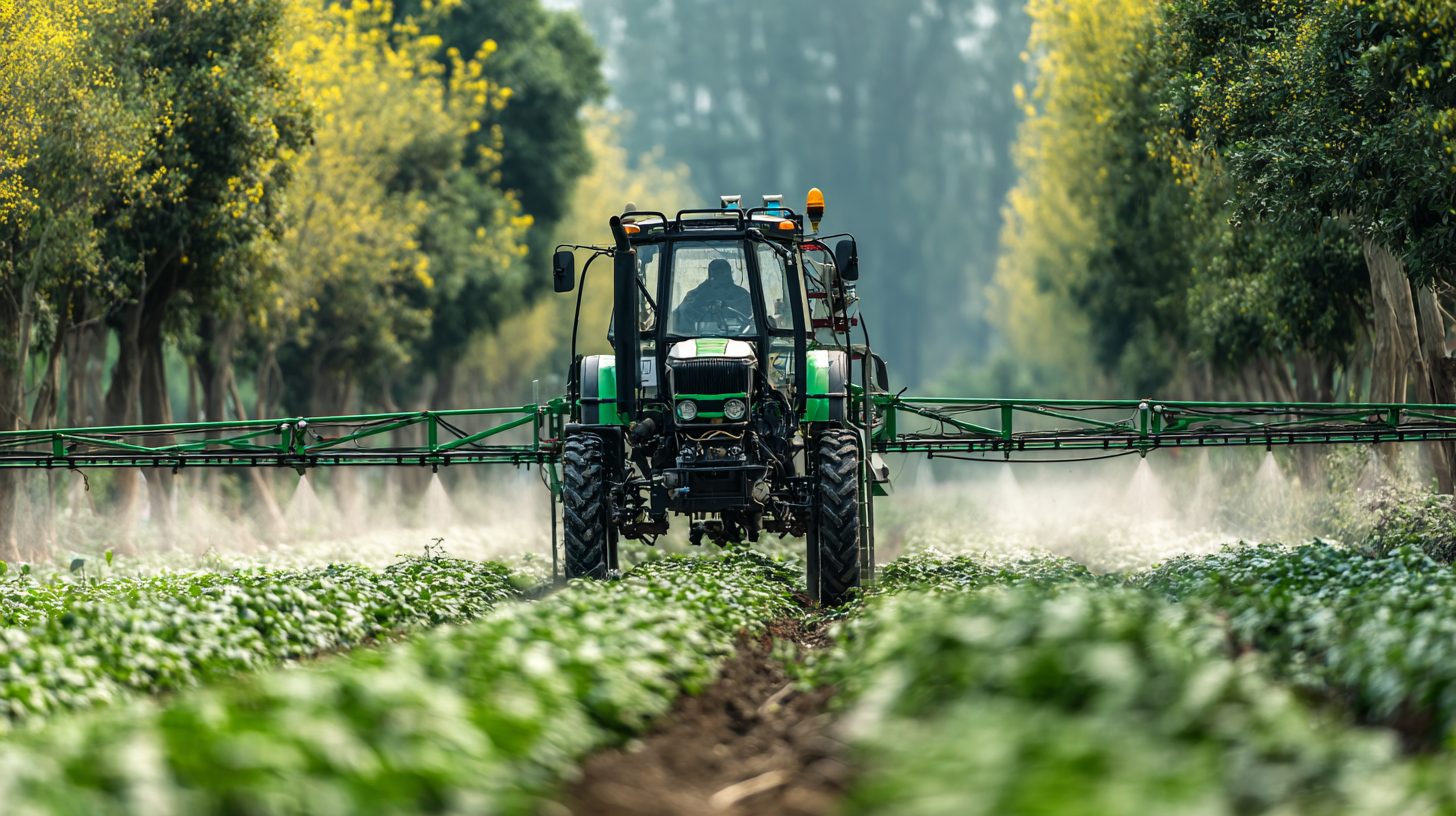
And leading this charge is Innovation Meiland (Hefei) Co., LTD. They’re really making waves in the sector, focusing on creating new pesticide products, formulations, and processes. Based out of Hefei, China, they’re all about raising the bar for global standards through some seriously cutting-edge innovations that change how we tackle insect management. By using advanced technology and really getting the hang of ecological balances, companies like Meiland are set to shake up Insecticide Control practices worldwide. This is all part of a bigger push for agricultural solutions that are not only efficient but also kinder to our environment.
You know, Chinese innovation is really shaking things up in the insecticide world. We're seeing some amazing progress towards creating solutions that are not just more effective but also kinder to our planet. It's pretty impressive how these new products are making a name for themselves—not just because they work, but also because they promote good, sustainable practices. These companies are focusing on natural ingredients and are cutting down on those harsh chemicals, which is seriously raising the bar for pest control globally.
If you're on the hunt for more sustainable insecticides, here are a couple of tips for you. First off, try to look for products with biodegradable ingredients and that are certified organic. It’s also a good move to support brands that are really pushing for eco-friendly research, as that can help steer the whole industry toward smarter, more innovative practices. And don’t forget, knowing how to apply these products matters a lot; using targeted sprays can really limit ecological disruption while making pest control more effective.
With more and more Chinese companies leading the charge in this tech, it’s a good idea to keep yourself updated on the latest solutions. Maybe consider joining a webinar or two or diving into some sustainability reports. You’ll get to see how these innovations not only help in managing pests but also boost agricultural resilience and food safety. By embracing these advancements, we can help create healthier ecosystems and look forward to a more sustainable future.
You know, the Global Insecticide control market is really picking up steam these days! It's projected to hit a whopping USD 48.21 billion by 2033, and you can bet that's driven by our growing need for solid pest management solutions. With more people moving to urban areas and the ongoing focus on boosting agricultural productivity, it's no wonder we see this trend. Companies are also getting creative, integrating some new tech to bring us sustainable and eco-friendly options that customers are really leaning towards.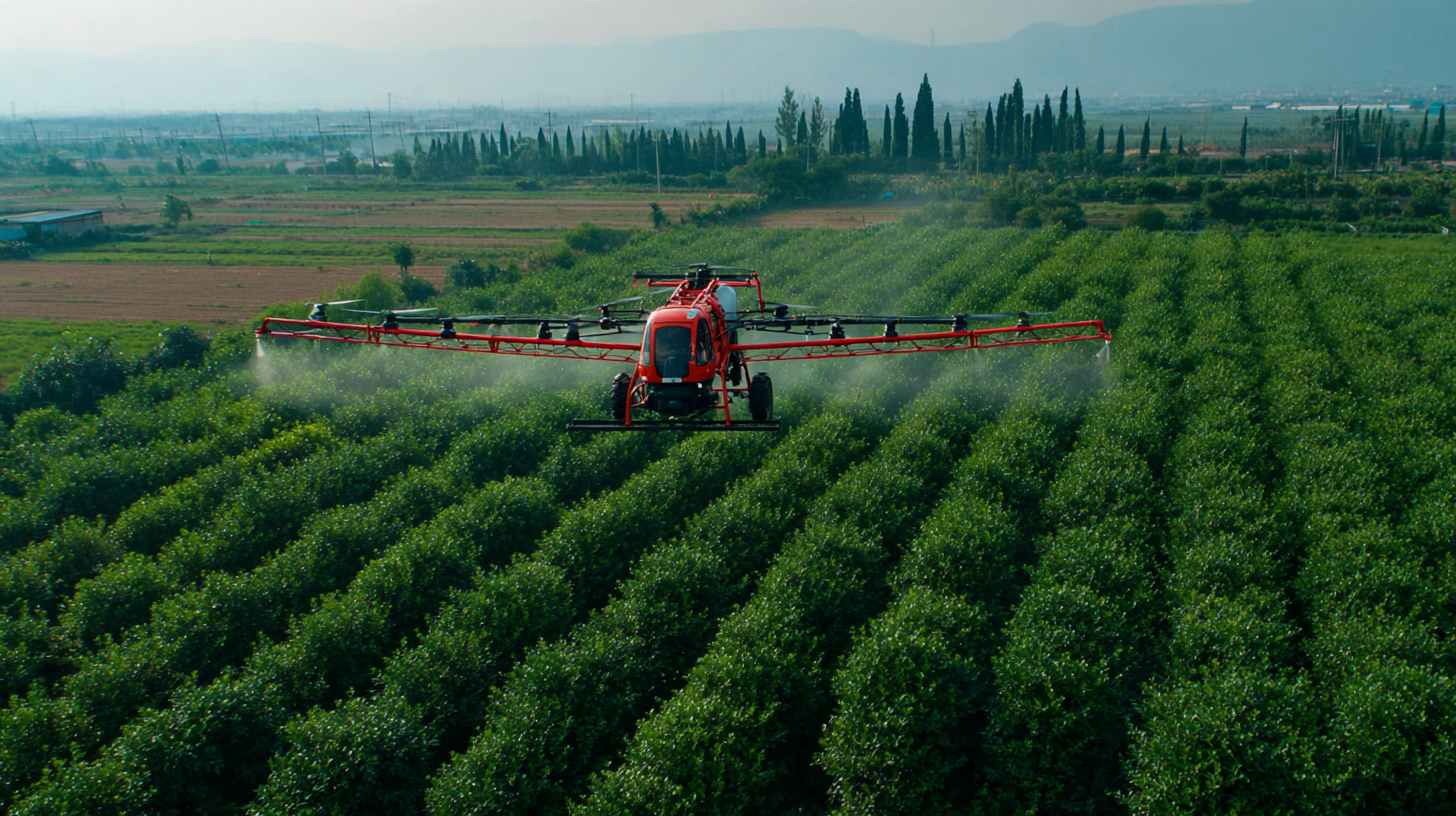 If you're on the hunt for Insecticide Solutions, here are a few tips: first, check how well products work on the pests you’re dealing with, and don’t forget about their impact on the environment. You want to pick something that's not just effective but also fits with your sustainability goals. And hey, keeping up with the latest trends in the market can really help you make informed choices, so your pest control strategies are botheffective and responsible.
If you're on the hunt for Insecticide Solutions, here are a few tips: first, check how well products work on the pests you’re dealing with, and don’t forget about their impact on the environment. You want to pick something that's not just effective but also fits with your sustainability goals. And hey, keeping up with the latest trends in the market can really help you make informed choices, so your pest control strategies are botheffective and responsible.
Plus, as new companies step into the game, especially those into biologically-based insecticides like Bacillus Thuringiensis, there's so much room for innovation! These new options cater to our ever-growing desire for natural solutions and really show how the industry is shifting towards more regenerative practices that line up with global sustainability goals. It’s an exciting time for all of us!
You know, over the past few years, the insecticide industry has really taken off, mostly thanks to some pretty cool innovations coming out of China, especially when it comes to being more environmentally friendly. It’s become super important to really think about how modern insecticides affect the environment because their use is linked so closely to how well we can grow our crops and keep our ecosystems healthy. In fact, forecasts show that the global pesticide market could hit around $85 billion by 2027, and insecticides are definitely going to be a big part of that growth. There’s been a noticeable shift towards greener options like biopesticides and strategies for integrated pest management, which really shows a commitment to keeping harmful effects on other species and the ecosystem as a whole in check.
But let’s not overlook another crucial point about modern insecticides. It's all about really understanding how they work with other agrochemicals. Research indicates that when we use things like surfactants and oil-based adjuvants, it not only boosts the effectiveness of insecticides but also helps lessen their environmental footprint. This is particularly important now, especially with all the chatter around the potential risks of genetically modified organisms, or GMOs. Funny enough, billions of chickens have been munching on genetically modified feed for over 40 generations without any serious issues, which kind of suggests that with the right regulations, we can have agricultural innovation while still taking care of our environment. Plus, we’re still digging into how pesticides affect plant microbiomes, which really emphasizes the need for a balanced approach to pest management—one that juggles high productivity with being responsible to our planet.
You know, the way regulations around insecticides are changing so quickly is really shaking things up for agriculture all over the world—especially with some of the cool new innovations coming out of China. These regulatory guidelines are super important because they help make sure that pesticides are safe, effective, and don’t mess up the environment too much. According to a report I saw from MarketsandMarkets, they’re predicting that the global insecticides market is gonna hit a whopping $17.7 billion by 2025! This growth is largely fueled by the urgent need for more sustainable farming practices. China is stepping up with innovations like biopesticides and integrated pest management solutions, which really seem to address the needs of both farmers and consumers while also keeping regulators happy.
In this shifting landscape, you can’t overlook how crucial those regulatory standards are. They don’t just decide what products can hit the shelves; they also shape how these products are created and used in the field. A study from the Food and Agriculture Organization found that sticking to strict regulatory standards can slash pesticide misuse by as much as 35%! That’s a big win for producing safer food and reducing the impact on our environment. As China ramps up its regulatory framework and invests in cutting-edge insecticide solutions, it’s opening the door for a more responsible, effective, and sustainable agricultural sector that meets global expectations.
You know, it’s pretty exciting to think about how the global insecticide market is going to change in the next few years. Right now, it’s valued at around USD 21.38 billion in 2024, and projections show it could jump to a whopping USD 36.43 billion by 2034! That’s quite a leap, don’t you think? This surge really highlights how critical innovative insecticide solutions are when it comes to tackling the agricultural challenges we face around the globe. Pest management is getting trickier, and with a growing push for more sustainable farming practices, there’s a real need for advanced insecticides. A lot of this innovation is coming out of China, which is pretty interesting.
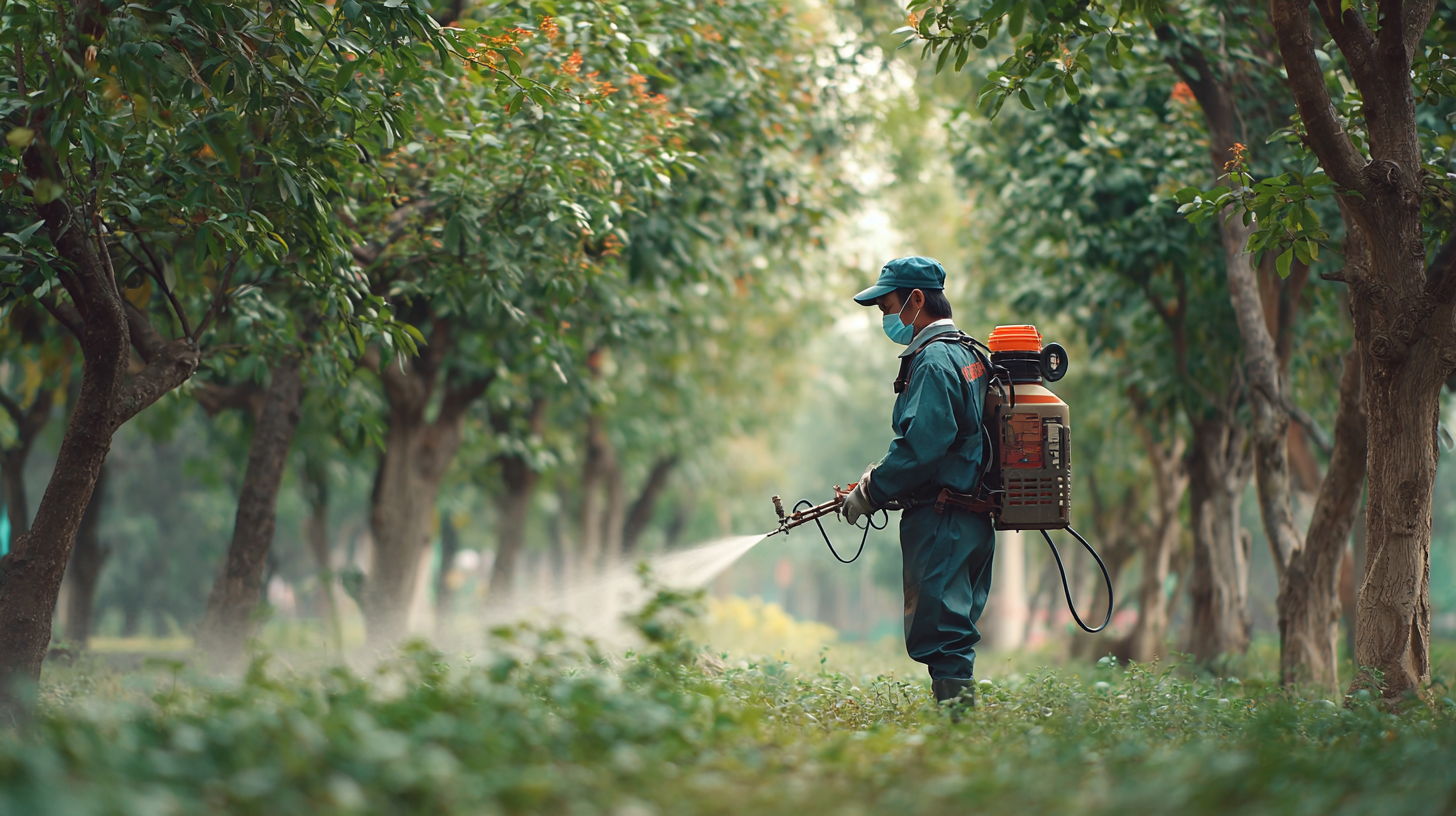
Looking ahead to 2025 and beyond, it’s clear that there’s going to be a big shift towards insecticides that are both eco-friendly and effective. We’re talking about bringing in biotechnology and precision agriculture to create new products that protect crops while also being gentle on the planet. Plus, with all the investment flowing into research and development, we can expect to see fresh formulations and technologies pop up. It’s all about making sure the insecticide market meets the agricultural demands we have while keeping up with what consumers want: sustainability and safety.
You know, when we talk about China's innovation in insecticide control, it's really a great example of how countries can come together to improve pest management on a global scale. Just look at the recent stats from the World Health Organization – they’re reporting an impressive 77% drop in malaria cases in the Greater Mekong Subregion! It's pretty clear that effective insecticides play a vital role in driving forward global health initiatives. And as China gets more involved in health tech, it really highlights the need for comprehensive strategies, especially in places where malaria is still a big issue.
What’s interesting is the way countries are teaming up! Those partnerships are super important for developing new insecticides that not only meet but actually exceed international standards. There have been some cool participatory approaches lately that show how combining scientific expertise with market insights can lead to effective and affordable insecticides. This kind of international collaboration doesn’t just aim to make these products more accessible though – it also focuses on making sure they work against new, resistant strains of mosquitoes. That’s what’ll help keep pest control sustainable in the long run. As nations face stagnation in their disease control efforts, focusing on collaboration and innovation is crucial now more than ever to really change the public health game.
: Chinese innovation is reshaping insecticide technology by prioritizing more effective and environmentally friendly solutions, focusing on natural ingredients and reducing harmful chemicals.
Consumers can research products with biodegradable components and those that are certified organic. Additionally, supporting brands that invest in eco-friendly research can promote innovative practices.
Learning about targeted application methods can minimize ecological disruption and enhance the efficiency of pest control, leading to more effective outcomes.
Modern insecticides, especially those driven by Chinese innovations, reflect a commitment to environmental sustainability by reducing adverse effects on non-target organisms and promoting integrated pest management strategies.
The global insecticide market is expected to increase from USD 21.38 billion in 2024 to USD 36.43 billion by 2034, indicating significant growth driven by sustainability and innovation.
Synergistic agents, such as surfactants and oil-based adjuvants, can amplify the effectiveness of insecticides while also minimizing their environmental impact.
Biotechnology and precision agriculture are expected to drive the development of innovative insecticide products that enhance crop protection and reduce ecological impact.
Consumers can attend webinars or read sustainability reports to learn about emerging solutions and understand their contributions to agricultural resilience and food safety.
Chinese firms are setting new global standards in pest control by prioritizing sustainable practices and advancing the development of innovative insecticide solutions.
Integrating pest management with environmental responsibility is crucial to balance agricultural productivity with minimizing negative effects on ecosystems, ensuring sustainable farming practices.

